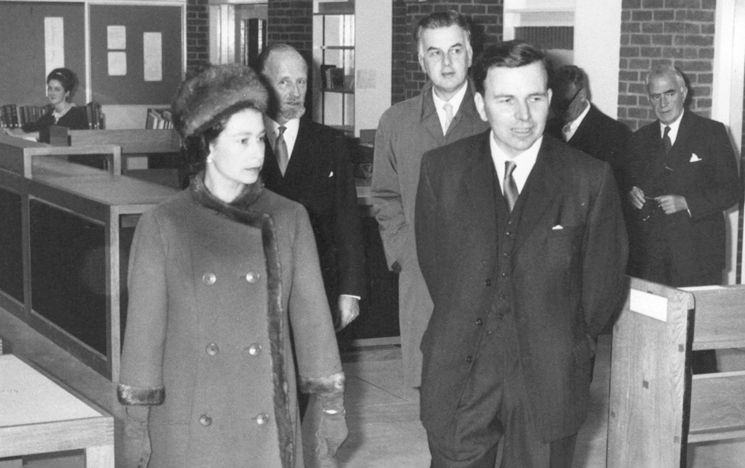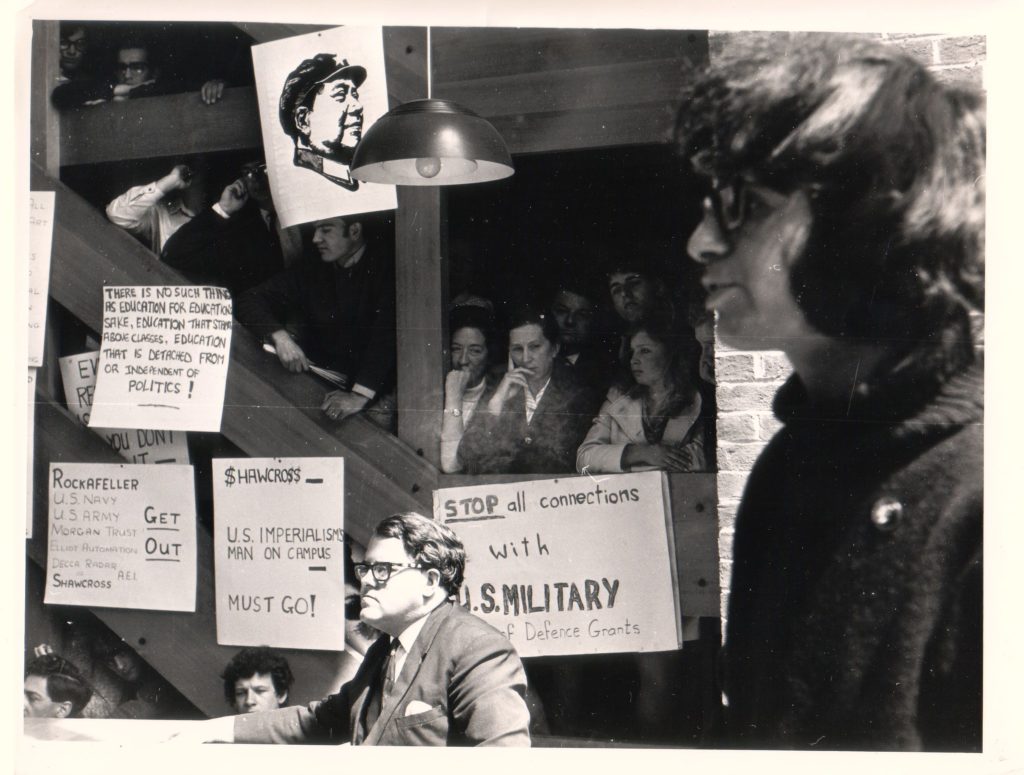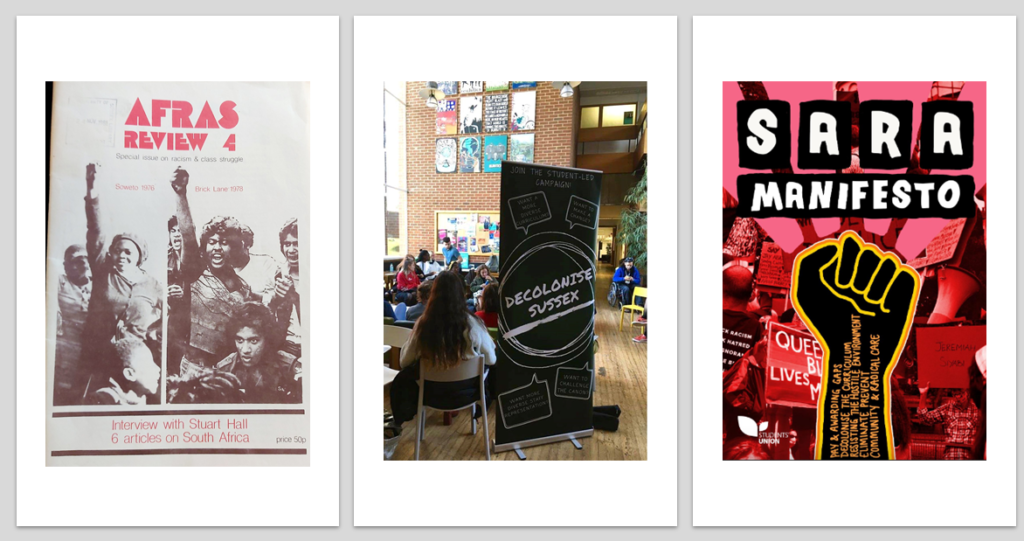Decolonial Maps of Learning is the short title of a AHRC-RLUK Professional Practice Fellowship (September 2022 – September 2023) designed and undertaken by Dr Alice Corble (Principal Investigator, University of Sussex Library). The full title of the project is Re-tracing the “new map of learning”: (post)colonial library and archival legacies and decolonial struggles at University of Sussex.
The project interrogates (post)colonial legacies of knowledge constructions, spaces and cultures produced via the Sussex library and archives. It explores historical and diasporic landscapes of learning using a cartographies of knowledge and power approach, in order to inform present calls to decolonise the university and understand the library’s integral role in this. Methods include archival research in the University of Sussex Collection, Library Legacy Collection, and the British Library of Development Studies Legacy Collection, as well as interviews with current and former staff and students. Exploring these untapped archives and lived library experiences reveals both reproduction of, and resistance to, colonial or racialised knowledge formations and disruptions across the university’s 60-year history. Sussex is a powerful site for this case study due to its postcolonial origins and status as the first of Britain’s “new universities” or “plate glass universities‘, founded in 1961 with a mission to draw “a new map of learning” (Asa Briggs).

The overarching research question is how important and integral is the university library, as both a centre of open learning and a repository of institutional memory, to understanding contemporary calls to decolonise the university and its curricula?
The University of Sussex was founded in 1961 and the Library building was opened by the Queen in 1964 (with its collections hitherto stored at Stanmer House and various sites on the university campus as it was constructed). Professor Asa Briggs described this moment as pioneering a bold “new map of learning” for faculty and students exploring unchartered pedagogical landscapes and crossing epistemic borders: “Given the huge changes which are taking place both in the formulation of new knowledge and in the world of action … we did not want to be confined to our own original territory even though the boundaries within it were being knocked down.” (Briggs, in Daiches, 1964, p.66).
A time of dramatic shifts in the geo-political world order led Sussex’s founding fathers to design progressive approaches to re-shaping education and research, putting the sciences into dialogue with the arts, and European Studies with African and Asian Studies. Sussex’s Brutalist campus designed by Sir Basil Spence was built against a backdrop of the ruins of World War II and the gradual dismembering of the British Empire, envisaging a ‘clean slate’ in the post-war, post-colonial era. This ‘new’ vision contrasted significantly with the imperial monuments and colonial legacies of traditional British redbrick universities. A closer exploration of the collections, stories, and knowledge architectures buried within the University of Sussex’s institutional memory, however, reveals a more complicated picture: riddled with hidden histories, uneven power relations, and tensions between resistance and reform.

In the present moment of dramatic shifts in educational and political world orders, in which there are mounting calls do decolonise education and embed racial justice, this project is designed to trace and expose the legacies of colonialism, racialisation and liberatory learning struggles hidden within the structures and cultures of the university through diverse and untapped bodies of knowledge stored and mediated through library and archival collections, services, and learning experiences of library users and workers.

Subsidiary research questions
- What were the (post)colonial and geopolitical foundations and pedagogical design of the University of Sussex and how was the library formed in conjunction with these?
- How have these origins and frameworks developed over the sixty years of the university’s life course in symbiosis with the development of its library?
- What examples of both reproduction of, and resistance to, colonial or racialised knowledge formations can be discovered across this institutional memory?
- What can this institutional memory and the role of the library tell us about where we are now and where we need to go with regards to the present injunction from students and scholar-activists to decolonise the university and fulfil its institutional pledge to become an anti-racist organisation?
Research aims
- To make visible the role of the library in shaping Sussex’s particular pedagogical and epistemic cultures that have developed in a postcolonial context
- To centre the voices, identities, and learning, teaching and research needs of marginalised Sussex students and staff
- To re-centre the importance of the library as an active agent of knowledge exchange and a partner in social and cultural transformation
- To make the case for further institutional and sectoral investment in collaboration between library professionals and library users in necessary action to fulfil decolonial and anti-racist objectives and actions.
Research methods
- archival research and knowledge mapping via the University of Sussex Collection, Library Legacy and British Library of Development Studies (BLDS) Legacy special collections focusing on the societal provenance, scope and development of these collections.
- ethnographic and auto-ethnographic participant observation in the Library, Archive, and classroom spaces
- interviews, focus groups and participatory workshops with past and present Sussex students and staff (using archival findings as forms of elicitation) exploring examples of lived experiences of both reproduction of and resistance to racialised and (post)colonial knowledge formations via library interfaces, collections, services, and working relationships.

